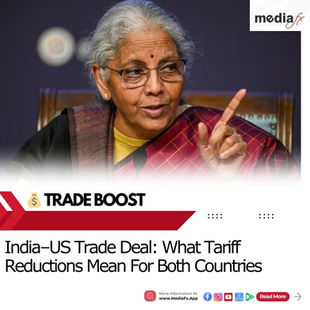📰 Indian Refineries Halt Oil Imports from Russia Amid US Sanctions 🛢️
- MediaFx

- Oct 28, 2025
- 2 min read
TL;DR:In a significant move, Indian refineries have suspended oil imports from Russia following US sanctions. This decision has wide-reaching implications for India’s energy imports, prompting concerns about supply chains and market adjustments. 🌍💥

What’s Happening?
In the wake of US sanctions on Russia, Indian refineries have stopped buying crude oil from Russia, a major shift in India’s energy procurement strategy.
The decision to halt purchases comes after growing pressure from Western countries, particularly the United States, which has intensified sanctions against Russia in response to geopolitical tensions.
Russian crude oil, which had previously been seen as a cost-effective option for Indian refineries, is now being replaced by alternative sources due to the complications arising from the sanctions.
This move is expected to have a significant impact on India’s energy supply, especially as it seeks to balance its energy needs with international diplomatic pressures.
Why It Matters
This change is crucial for India’s energy landscape and has multiple ramifications:
Energy Diversification: India, which relies heavily on oil imports, will now need to explore alternative oil sources, likely leading to increased imports from other countries such as the Middle East and Africa.
Impact on Oil Prices: With a reduction in Russian oil imports, global oil prices might see further volatility. India’s oil procurement, especially at lower prices, could become a challenge, affecting domestic fuel prices and leading to potential inflationary pressures.
Geopolitical Dynamics: India’s decision also reflects the changing geopolitical dynamics, balancing its need for energy security with international alliances. As one of the world’s largest oil importers, India’s move could shift global energy trade patterns.
Who Gains & Who Loses?
Gains:
Alternative Oil Suppliers: Countries that are not subject to US sanctions, such as Middle Eastern nations, could benefit from increased oil exports to India, as Indian refineries look for new sources.
US and Western Allies: The US and other Western countries may view India’s move as a positive alignment with international sanctions, bolstering relations and diplomatic support.
Losses:
Indian Refineries: The refineries that relied on Russian crude for its cost-effectiveness now face higher procurement costs from alternative suppliers, which may affect their margins and profitability.
Indian Consumers: As the country adjusts to the shift, fuel prices could rise, affecting domestic consumers and businesses that rely on affordable energy supplies.
The Bigger Picture
The decision to halt Russian oil imports is part of India’s broader energy strategy, which includes efforts to diversify oil suppliers and reduce dependence on any one source.
Shifting Energy Alliances: This shift signals how global political pressures are influencing energy trade. As India navigates its energy needs with international relations, it also faces the challenge of maintaining its energy security while adhering to global sanctions.
Impact on Energy Policy: This move could lead India to accelerate its efforts to expand renewable energy sources, which could reduce reliance on oil imports in the future, especially as climate change and energy security become more pressing issues.
International Energy Markets: India’s halt on Russian crude may set a precedent for other developing nations that also rely on Russian oil, signaling a broader shift in energy alliances in the wake of sanctions.













































